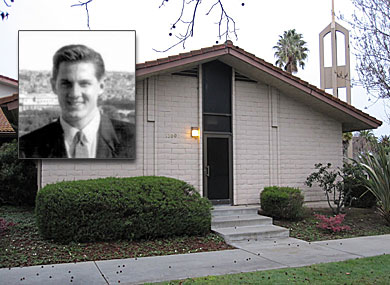|
presents THIS DAY IN GAY HISTORY based on: The White Crane Institute's 'Gay Wisdom', Gay Birthdays, Gay For Today, Famous GLBT, glbt-Gay Encylopedia, Today in Gay History, Wikipedia, and more …
Collected by Ted February 25 [{(o)}]|[{(o)}]|[{(o)}]|[{(o)}]| [{(o)}]|[{(o)}]
After leaving school he worked for the family electrical engineering firm. Leaving the family business Richard Wattis became a professional actor. His debut was with Croydon Repertory Theatre he made many stage appearances in the West End. His first appearance in a film was A Yank at Oxford (1938), but war service interrupted his career as an actor. Wattis served as a Second Lieutenant with the Arms Section of Special Operations Executive at Station VI during World War II. He is best known for his appearances in British comedies of the 1950s and 1960s, typically as the "Man from the Ministry" or similar character, with trademark thick-rimmed round spectacles. These included the St Trinian's films (The Belles of St Trinian's, Blue Murder at St Trinian's and The Great St Trinian's Train Robbery, as Manton Bassett, a civil servant who was the Deputy Director of Schools in the Ministry of Education, where he was often seen frowning and expressing indignation at the outrageous behaviour of other characters. To American audiences he is probably best known for his screen performance as the British civil servant Northbrook in The Prince and the Showgirl (1957) with Laurence Olivier and Marilyn Monroe. The film script was by Terence Rattigan of his own successful West End play which had originally starred Olivier and his then-wife Vivien Leigh. Other films included Hobson's Choice, Chitty Chitty Bang Bang, Carry On Spying, The Colditz Story, Dentist on the Job, Very Important Person, The Happiest Days of Your Life and The Longest Day. Richard Wattis also appeared on television, including a long-running role opposite Eric Sykes and Hattie Jacques in Sykes as their next-door neighbour, and appearances in Danger Man, The Prisoner, The Goodies, Hancock's Half Hour and Father, Dear Father. In 1957-58, he appeared as Peter Jamison in three episodes of an American sitcom filmed in Britain, Dick and the Duchess, starring Patrick O'Neal and Hazel Court. He was gay, in an era when this was a taboo subject, though unusually, in his role as Northbrook in The Prince and the Showgirl by gay playwright Terence Rattigan, he makes it clear near the beginning of the film that he is attracted to the title character portrayed by Laurence Olivier. He died of a heart attack in a Kensington restaurant in 1975 aged 62 years, in the middle of his favourite meal and claret.
1937 – Severo Sarduy, born in Camagüey, Cuba (d.1993) was a Cuban poet, author, playwright, and critic of Cuban literature and art. He went to Havana in the mid-1950s to study medicine. Though he did not finish his studies, he retained a lifelong interest in science. While living in the capital he pursued his vocation for poetry and painting and came into contact with older writers such as José Rodríguez Feo and José Lezama Lima. With the advent of the revolution in 1959, Sarduy became one of a group of young writers given the task of renewing Cuban literature. Sent to Paris by the government in 1960 to study art at the École du Louvre, Sarduy decided not to return to Cuba when his scholarship ran out a year later. Disaffected with Castro's regime and fearful of its persecution of homosexuals and the censorship imposed on writers, Sarduy never went home. In Paris, he was connected to the group of intellectuals who produced the magazine Tel Quel, particularly to philosopher François Wahl, with whom he was openly involved. Sarduy worked as a reader for Editions du Seuil and as editor and producer of the Radiodiffusion-Télévision Française. In 1972 his novel Cobra won him the Medici Prize. He was among the most brilliant essayists writing in Spanish and "a powerful baroque narrator, full of surprising resources.". As a poet, he was considered one of the greatest of his time. He was also a more or less secret painter; a major retrospective of his work was held at the Reina Sofía Museum of Madrid after his death. He died due to complications from AIDS just after finishing his autobiographical work Los pájaros de la playa. Sarduy's posthumous Pájaros de la playa (1993; "Beach Fowl") is about a sanatorium for sufferers of AIDS, the disease that killed the author.
1942 – John Saul is an American author of suspense and horror novels. Most of his books have appeared on the New York Times Best Seller List. Born in Pasadena, Saul grew up in Whittier, California. He went on to several colleges, variously majoring in anthropology, liberal arts and theater, but never obtained a degree. After leaving college, Saul decided to become a writer, and spent fifteen years working in various jobs while trying to improve his craft. Prior to the start of his bestselling thriller career Saul had around ten books published under pen names, the first of which he wrote in one weekend after unexpectedly losing his job. His first book sale earned him just $200. Today he has over 60 million books in print. In 1976, Dell Publishing contacted him and asked if he'd be interested in writing a psychological thriller. The resulting novel, Suffer the Children, appeared on all the bestseller lists in the United States and reached the number one spot in Canada. Cry for the Strangers was made into a film of the same name in 1982. In addition to his novels, Saul has had several one-act plays produced in both Los Angeles and Seattle. Saul lives part-time in the Pacific Northwest, both in Seattle and in the San Juan Islands, and has a residence on the Big Island of Hawaii. Saul is openly gay. He lives with his partner of 32 years, who has collaborated on several of his novels. He is a frequent speaker at the Maui Writers' Conference.
Jorge Donn was born in Buenos Aires, Argentina. He began to dance when he was 4 or 5 years old, then studied at the Colon Theatre school. In 1963, he arrived in Brussels to work in the Maurice Béjart company and soon became its principal dancer, entering into a twenty-year professional and personal relationship with Béjart. Many of Béjart's works were created expressly for him: Bhakti (1968), Nijinsky, Clown of God (1971), Golestan, or The garden of roses (1973), Ce que l'amour me dit (1974), Notre Faust (1975), Léda (1978), Adagietto (1981) and others. In 1976, Jorge Donn became artistic director of the Béjart's Ballet of the Twentieth Century company. In 1988, he founded his own company, L'Europa Ballet, which existed for a short time. Jorge Donn died of AIDS on 30th November 1992 in Lausanne. Many choreographers created ballets as a tribute to him: Maurice Béjart (Ballet for Life), Denys Ganio (Tango... a rose for Jorge Donn), Carolyn Carlson (Homage for Jorge Donn), Grazia Galante (Masticando Sueños)
1948 – The Italian novelist Aldo Busi was born in Montichiari, Italy. A precocious and defiant youth, he was thrown out of his home town at the age of 14 for declaring himself homosexual. He worked as a waiter in Milan, but spent time in other European cities, where he mastered French, German, and English. He returned to Italy and began to work as a translator, before achieving success in 1984 with his first novel. Busi's first book Semario sulla gioventù (Seminar of Youth, 1984) was received warmly. It is a semi-autobiographical novel in eight episodes; it outlines the adventures and misadventures of a handsome young man from northern Italy, who flees his hometown and goes to Paris, where he spends his life confounding those who desire him, both male and female. After several other books, in 1988, Busi achieved national attention with his novel, Sodomie in Corpo 11 (Sodomies in Elevenpoint). This work charts its protagonist's convoluted misadventures in Morocco, including several homosexual episodes. Busi presents the protagonist as both outsider and wanderer. This book was reviled by the Catholic church as immoral, and charged by the Italian judicial system with obscenity. Busi was absolved of criminal charges, and the highly publicized trial probably increased the sales of the book. While his work sometimes inadvertently tends to reinforce stereotypical views that highly-sexed males are doomed to become gypsies and wanderers, addicted to promiscuous sex and unable to have happy relationships, Busi himself is very clear about his scorn for such notions.
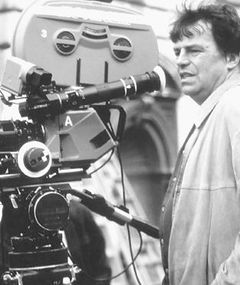
Although in a conventional heterosexual marriage, unconventional sexual relationships are a recurring theme in this gay-friendly director's work, and he often finds a sympathetic side to characters audiences would traditionally consider deviant or downright horrifying. His film The Miracle, for instance, followed two characters who struggled to resist a strong, incestuous attraction, while The Crying Game made complicated, likable characters out of an IRA terrorist and a Transgendered woman. Vampire, like the Anne Rice book it was based on, focused on the intense sexual relationship of two undead men who murder humans nightly (although the pair never have sex, they are clearly lovers of a sort), accompanied by an equally lusty vampire woman who is eternally trapped in the body of a little girl. While Lestat (Tom Cruise) is depicted in an attractive but villainous manner, his lover Louis (Brad Pitt) and the child vampire Claudia (Kirsten Dunst) are meant to capture the audience's sympathy despite their predatory nature.
1953 – Garrett Glaser is a retired news reporter who was one of the first US television journalists to "come out" publicly as a homosexual. His coming out occurred during the course of a speech he made before a large group of TV and radio executives at the 1992 convention of the Radio/TV News Directors Association being held in San Antonio, Texas. Although Glaser co-founded the Electronic Media Task Force of the National Lesbian/Gay Journalists Association (NLGJA) in 1990 and was later out, as well, to fellow journalists, he was not out to the public at large. That changed in 1994, when Glaser disclosed his sexual orientation during a live report on the "Channel 4 News" at KNBC-TV Los Angeles as he was reporting on the death of Elizabeth Glaser (no relation), an AIDS activist who founded the Pediatric AIDS Foundation. Several weeks later, the Los Angeles Times published a story on the front page of its "Calendar" section about Glaser's status as one of the nation's few openly gay TV reporters,
1955 – Rodger McFarlane (d.2009) was an American gay rights activist who served as the first paid executive director of the Gay Men's Health Crisis and later served in leadership positions with Broadway Cares/Equity Fights AIDS, Bailey House and the Gill Foundation. McFarlane was born on February 25, 1955 in Mobile, Alabama and was raised on the family's soybean and chicken farm in Theodore, Alabama. The 6-foot, 7-inch McFarlane played football in high school, where he was "a monster, a legend", who was "big enough to get past the gay thing" playing football and could then "go jump rope with the girls." He attended the University of South Alabama. He enlisted in the United States Navy in 1974, serving on a submarine as a nuclear reactor technician. Following his military service, McFarlane moved to New York City, where he worked as a respiratory therapist. In the early 1980s, McFarlane walked into the offices of Gay Men's Health Crisis, offering to serve as a volunteer. He began a crisis counseling hotline that originated on his own home telephone, which ultimately became one of the organization's most effective tools for sharing information about AIDS. Shortly thereafter, he was named as the first paid executive director of GMHC, helping create a more formal structure for the nascent organization, which had no funding or offices when he took on the role. Larry Kramer, the playwright and gay rights activist who was one of the six founders of Gay Men's Health Crisis in 1982, who became a friend of McFarlane's, saidthat by the time of his death, "the G.M.H.C. is essentially what he started: crisis counseling, legal aid, volunteers, the buddy system, social workers" as part of an organization that serves more than 15,000 people affected by HIV and AIDS. In December 1983, when GMHC was housed in rundown brownstone and served 250 people with AIDs, McFarlane lamented the inequitable treatment of gays by society at large, noting how "We were forced to take care of ourselves because we learned that if you have certain diseases, certain lifestyles, you can't expect the same services as other parts of society". McFarlane served as executive director until 1985. McFarlane was one of the founding members of the New York branch of the AIDS Coalition to Unleash Power (ACT UP). He served as executive director of Broadway Cares/Equity Fights AIDS from 1989 until 1994, an organization that uses the talents and resources of the theatre industry to raise funds and distribute grants for AIDS-related causes. He also served as president of Bailey House, a not-for-profit organization that provides shelter for homeless people with AIDS. McFarlane served as the executive director of the Gill Foundation from 2004 until 2008, an LGBT organization founded by Tim Gill and based in Denver that which provides grants and operating support for not-for-profit and community foundations. McFarlane lived in Manhattan for many years with his brother David, helping take care of him before his death due to AIDS in 2002. Together with Philip Bashe, he wrote the 1998 book The Complete Bedside Companion: No-Nonsense Advice on Caring for the Seriously Ill, which was based on his personal experiences over more than two decades caring for his brother and other seriously ill friends and family members. According to the dramaturgical information that Kramer passed out after performances of the 2011 revival of his 1985 work The Normal Heart (which was one of the first plays to address the HIV/AIDS crisis), that play's character named "Tommy" was based on McFarlane. Tommy was played by William DeAcutis in the 1985 original production and by Jim Parsons in the 2011 revival. Working together with Kramer, McFarlane was the co-producer of the 1993 production of The Destiny of Me, the Pulitzer Prize-nominated play that was the sequel to The Normal Heart. Shortly before his death, McFarlane wrote the afterword for Kramer's book The Tragedy of Today's Gays. A resident of Denver, Colorado, McFarlane committed suicide at age 54 on May 15, 2009 in Truth or Consequences, New Mexico. McFarlane left a letter in which he indicated that he could no longer continue dealing with heart and back problems, which followed a broken back in 2002. In an interview with The New York Times after McFarlane's death, Kramer spoke about his role at GMHC and described how "single-handedly Rodger took this struggling ragtag group of really frightened and mostly young men, found us an office and set up all the programs." Kramer told The Advocate that McFarlane "did more for the gay world than any person has ever done" and stated that "I don't think the gay world knew or knows how great he was and how much he did for us and how much we need him still and how much we will miss him."
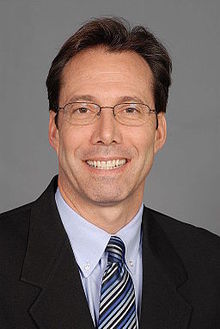
1956 – Jay Fisette is an American politician in Arlington County, Virginia. He is currently serving as Vice-Chair of the five-person Arlington County Board. He became the state's first openly gay elected official when he was elected to the board in 1997. Fisette has won four reelections since then and served as the County Board Chair in 2001, 2005, 2010 and 2014. He is a member of the Democratic Party. Fisette previously worked for the federal government and at a local nonprofit health center. Fisette received his Bachelor of Arts degree in Political Science from Bucknell University in 1978. Fisette said he chose that field of study because he "learned that government was a force for good, and public service was a noble profession." Following his graduation, he spent 18 months in San Francisco, a time where he accepted his identity as a gay man. According to Fisette, "It was here, in the recent aftermath of Harvey Milk's death that I started to recognize the importance of having openly gay men and lesbians in elected office." He then attended the University of Pittsburgh where he received his Master of Arts degree in Public and International Affairs in 1983.
1976 – Indiana passes a new criminal code that repeals its sodomy law.
1982 – Wisconsin Governor Lee Dreyfus signs the bill which added the prohibition against discrimination on the basis of sexual orientation to the state’s civil rights statute, making Wisconsin the first state in the U.S. to do so!
1989 – Evan Todd is an American actor and producer. Todd grew up in Kissimmee, Florida. He finished his senior year of high school at the North Carolina School of the Arts in Winston-Salem and later graduated from the Juilliard School. Todd also studied at Yale School of Drama and London Academy of Music and Dramatic Art. In 2007, Todd made his big screen debut as a student in the 2007 film Sydney White. He subsequently appeared in several television films and series such as Grumpy Cat's Worst Christmas Ever (2014), Switched at Birth and Jane the Virgin. In 2014, he originated the role of Kurt Kelly in Heathers: The Musical, when the rock musical had a production Off-Broadway. The following year, Todd co-produced the 2015 Broadway revival of Spring Awakening. A critical success, the rock musical, based on the German play Spring Awakening (1891) by Frank Wedekind, was nominated for both a Tony Award and a Drama Desk Award for Outstanding Revival of a Musical. In 2016, Todd had a leading role in the comedy film 4th Man Out about a young mechanic who comes out to his straight buddies and to his family. The film received the Audience Choice Award for Best Dramatic Feature at Outfest, and was awarded the Audience Award for Best Narrative Feature at the InsideOut LGBT Film Festival. In March 2017, Todd joined the Broadway cast of Beautiful: The Carole King Musical as King’s songwriter first husband and writing partner Gerry Goffin. Todd is openly gay. He is the co-founder of stART and artsINSIDEOUT, two summer arts empowerment programs benefiting students from his home town as well as children affected by HIV in South Africa.
2000 – Ola Hoftun Lillelien, born on this date, is a professional handball player who proudly came out as a gay man in April 2022. Lillelien, 22, plays for the nation of Denmark. Handball is a very popular sport in Europe, wherein teams play keep away with a ball as they try to toss it in the opposing team’s goal. Think of it as a combination of basketball and soccer. Lillelien took to Instagram on April 21 to share the emotional revelation with his fans. In coming out, he becomes one of the few openly LGBTQ players in the league. “I have been thinking for a long time about whether I should publish this post, but I now understand that it is something I want,” he wrote. “Not for my own part, but to be a role model. Not just for young people, but for everyone. About half a year ago, I told my family, friends and teammates that I most likely do not end up with a sweet girl, but a handsome boy. The response was exclusively positive!” “I say it like the king: Norway is boys who love boys, girls who love girls, and girls and boys who love each other,” Lillelien said, quoting from a speech of acceptance by King Harald V in 2016. The athlete deliberately published the post on a specific date: "On April 21, 2022, it will be 50 years since loving who you want was decriminalized in Norway," he continued. "This post was not made by me to seek validation or attention, but to proudly thank those who fought before me for my right to love who I want." "I hope today's society has come to the point where boys and girls don't have to worry about not being accepted for who they are. Being in love with someone isn't sensational, so I hope we've managed that it doesn't turn out to be a big deal."
2000 – On this date Henry Stuart Matis walked up to the steps of a Mormon church in Los Altos with a note reading "Do not resuscitate" pinned to his shirt, and shot himself. He was a 32-year-old Gay man and devoted member of the The Church of Jesus Christ of Latter-day Saints, and after a lifetime spent struggling to reconcile the two, explained in a suicide note that "for the first time in over 20 years, I am free from my pains." "As I believed that I was a Christian, I believed that I could never be Gay," he wrote. "Perhaps my death ... might become the catalyst for much good ... Your actions might help to save many young people's lives." In the early morning, on the 10th anniversary of Matis' death, a group of local Mormons and others held a memorial vigil for Matis in Los Altos. Starting at Cuesta Park with songs and brief speeches, about 20 people then walked up Grant Road, carrying roses and candles. They ended up on the sidewalk in front of the LDS stake center on Grant Road in Los Altos, where they set up a small memorial display with an image of Matis' tombstone and stories about him and other Gay Mormons who have committed suicide. Matis' body was found at the center, which serves as the headquarters for South Bay Mormon congregations, at about 7:30 a.m. on Feb. 25, 2000. Robert Rees of the Santa Cruz stake, who served as a spiritual adviser to Matis, said the event was meant "to honor a good man who eft life much earlier than he should have, whose passing was tragic but whose message was one of hope to other people." According to a statement on its Web site, the Mormon church believes that acting on "same-gender attraction" is a sin and Gay church members must remain celibate. George Cole, a San Francisco resident who is Gay and serves on the executive committee of Affirmation, a support and advocacy group for Gay and Lesbian current and former Mormons, said he didn't know Matis personally but has "lost too many very good friends to suicide. "I know what it is like to seriously consider taking your life," he said. Cole said he left the Mormon church in 2002. "I chose happiness and fulfillment at the cost of not having the church in my own life," he said. Matis died just a couple of weeks before Proposition 22, the anti-Gay marriage measure in 2000 that preceded 2008's Proposition 8, went before voters, and his death was often portrayed as a political statement, though Matis did not mention the initiative in his suicide note.
2007 – On this date the 79th Academy Awards were hosted by Ellen DeGeneres in Hollywood.
[{(o)}]|[{(o)}]|[{(o)}]|[{(o)}]| [{(o)}]|[{(o)}] |
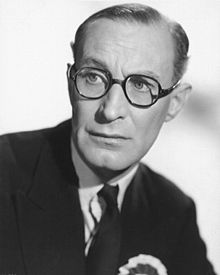
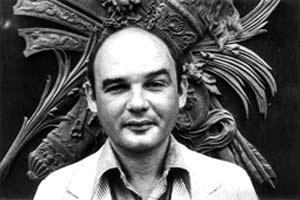
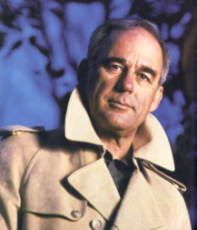
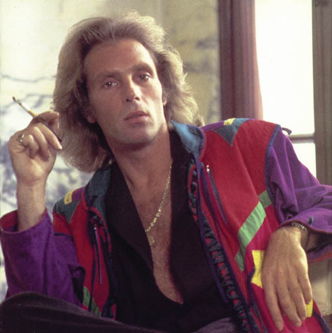
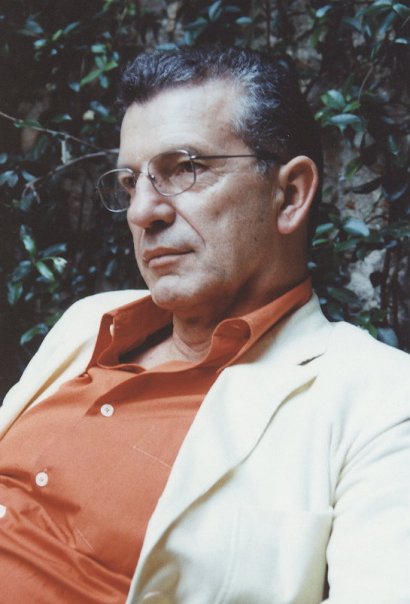
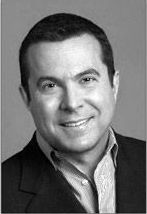
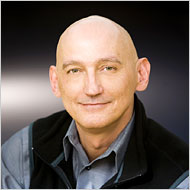

 Added 2024
Added 2024
